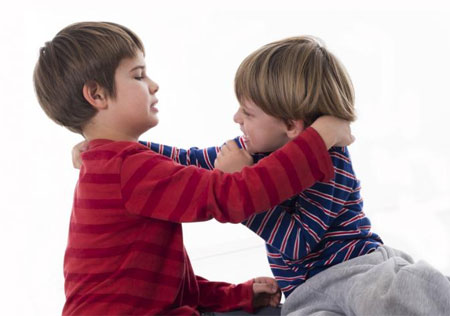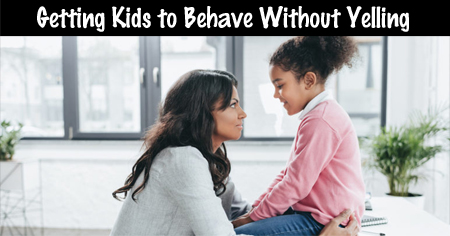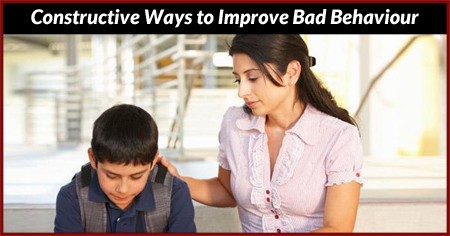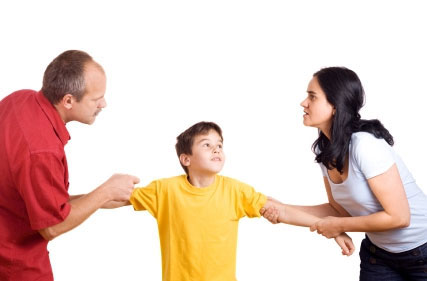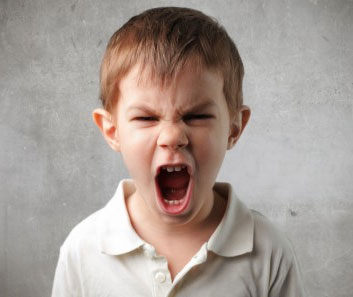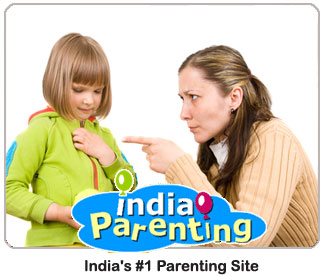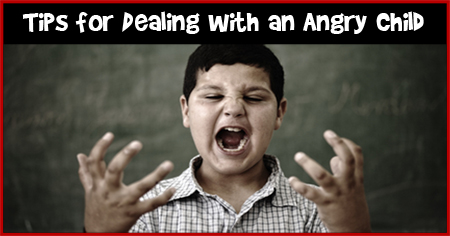 Problem solving skills are not properly developed in children. They are also not able to control and manage their anger. But parents can help them a lot in such situations. Take a quick look at the things which you must remember when your child gets angry.
Problem solving skills are not properly developed in children. They are also not able to control and manage their anger. But parents can help them a lot in such situations. Take a quick look at the things which you must remember when your child gets angry.What would be the reaction of a parent when the child gets angry and shout at an all-out range? Yelling, not replying at all, getting terrified and giving-up are some of the common reactions of parents to a child’s anger. Helping children overcome the childhood anger and frustration seems to be very tough for all the parents.
There are many reasons for a child to get angry as they are not aware of many facts and realities. Due to this, often children and parents get into
arguments and develop opposing opinions. Nowadays, children are more open to many emotions and thus bursting out in
anger may result in uncontrollable situations. Parents must be careful of few things when a child gets angry and they are listed below.
Control the Emotional Reaction
When your
child gets angry, it is better to step out of the state so that the fight will not have a severe impact and escalation stops here. Just walk away from that place, take a deep breath and try to control yourself without yelling at him or her. Ask yourself “What am I going to do now to get out of this situation?” and once you find a right answer then proceed. It is the parent’s duty to handle child’s emotions in a proper way and teach them the right path.
Stop Reasoning with an Angry Child
Rational talk will not work out with an angry child. If you trigger the reason for the disappointment of your child, probably it will make the situation worse. Never force your child to think in your way as that is not at all possible for his or her age. In case if you force him or her to tell reasons for his or her anger, he or she will keep on arguing and later it may have a very bad ending. It is better to understand the situation and be quiet. Just tell the child something like “I know that you are very upset about something, let’s take some time and chat on the same later.”
Avoid Making Threats in the Heat of Moment
Before giving your consequences when your child is angry, wait until he or she gets calm. If trying to penalize the child, the condition will get worse and further outburst may happen. Though, each family has a set of rules to follow, let them express the anger in the initial stage and later explain the workout to overcome such an incident in the future. Do not threaten the children to follow the rules all the time as that would make them more frustrated.
Get a Chance to Discuss with the Child Later
When the child seems to be well matured and willing to talk about what made him or her angry, it is best suggested to sit with him or her and discuss after sometime when he or she
calms down. Every parent must be patient to listen to what they say and do not interrupt or orate until they finish telling their concern. Once they are open with their worries, ask them few necessary questions like “What are the possibilities to solve this issue if it repeats?”, “Do you need some help from me to solve this issue, if yes, let me know how may I help you?”.
The reason behind the anger of a child is they are not having a good problem-solving skill. They must get educated on how to solve problems in some healthier methods without screaming, shouting, breaking things and using bad terms. Thus, discussing with the children and finding out the reasons will help to guide them in problem-solving. School education alone will not help the children to resolve all their daily problems. So, parents should take an opportunity to talk and direct them to handle the situation better for next time.
What can make a child angry? How to help children deal with anger? In what ways should parents react when their children get angry? Discuss here.










 Problem solving skills are not properly developed in children. They are also not able to control and manage their anger. But parents can help them a lot in such situations. Take a quick look at the things which you must remember when your child gets angry.What would be the reaction of a parent when the child gets angry and shout at an all-out range? Yelling, not replying at all, getting terrified and giving-up are some of the common reactions of parents to a child’s anger. Helping children overcome the childhood anger and frustration seems to be very tough for all the parents.There are many reasons for a child to get angry as they are not aware of many facts and realities. Due to this, often children and parents get into
Problem solving skills are not properly developed in children. They are also not able to control and manage their anger. But parents can help them a lot in such situations. Take a quick look at the things which you must remember when your child gets angry.What would be the reaction of a parent when the child gets angry and shout at an all-out range? Yelling, not replying at all, getting terrified and giving-up are some of the common reactions of parents to a child’s anger. Helping children overcome the childhood anger and frustration seems to be very tough for all the parents.There are many reasons for a child to get angry as they are not aware of many facts and realities. Due to this, often children and parents get into 



